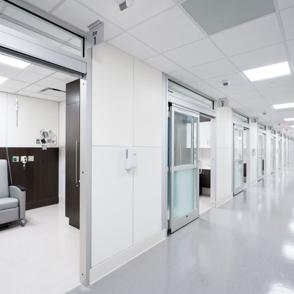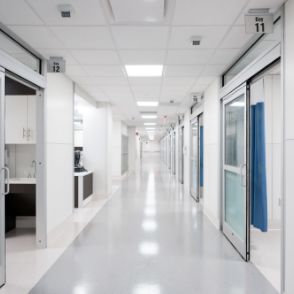My work as Managing Director at Architectural Wallsz overseeing our glass partitioning and architectural glazing projects as well as Chairman of the FIS means that I’m intrinsically linked with the UK construction sector, and subsequently the developments within it directly impact how we do business. As such, I feel it of paramount importance to keep abreast with breaking news and key headlines – especially when it comes to upcoming trends. I have this week been catching up on some articles that created significant industry conversation last month and here share just a couple that I feel are really worth sharing.
Firstly we saw the concept of co-working spaces, and the growing uptake by commercial players, lead numerous news boards. It’s been widely reported that co-working spaces – which if you aren’t yet acquainted, are a style of space that centres on independent activity and the sharing of a working environment – are rising in popularity and are set to be somewhat of a standard by 2022. Over the last few years, such spaces have been gradually developing in large part due to a greater need for workplace flexibility, and innovative start-ups and the ambitious self-employed driving easily-accessible and cost-effective working environments.
But what does this mean for the construction industry at large? It could be that the type of workspaces we are contracted to create in the future are significantly different from those we’re familiar with today. Collaboration between likeminded (or even totally contrasting!) businesses could see drastically revolutionised projects, or even the removal of the single contractor model. From an opportunistic perspective, it’s even been predicted that we’ll see an increase in the number of firms specialising in office rentals shoot up as demand for co-working spaces puts pressure on supply.
It’s also claimed that with mature European marketplaces set to develop at a much slower pace than we’ve been used to, construction companies here in the UK may have a little extra time to adapt. This makes 2018 a prime time to research and prepare for the co-working space trend making in big on our shores. Whatever the outcome though, it’s my opinion that the new office model of co-working is sure to drive new and innovative interiors (both concerning design and materials), and influence how we approach the construction of commercial spaces. You can read more about the growth of co-working spaces in the article by GCUC here.
Leading on from the GCUC analysis, I’ve come across a further story focused on co-working spaces and their compelling rise in popularity. USA-based company WeWork Labs has recently announced that they’ll be re-launching their business and is gradually expanding into wider USA territories and worldwide countries. The business has a primary goal of offering start-ups in their early stages of establishment future-proof new places to learn, work and grow.
WeWork currently owns a total of 212 communal spaces, each aiming to deliver a tailored business experience based on an office’s location. The model behind WeWork Labs is to grow businesses without talking equity, therefore maximising a long-term partner in what is referred to as a “business incubator environment” (a key buzz phrase right now). These spaces also intend to offer services such as workshops, skills labs, educational courses and other benefits to ensure that every budding entrepreneur is armed with the appropriate skills to keep them on track with their business ambitions.
After reading about this business model, I personally deem it unlikely that names such as WeWork Labs will remain outside of Britain for much longer. There’s massive opportunity here in the UK to make the most out of a post-Brexit Britain, and to transform our economic output, efficiencies and skills profile. Therefore encouraging affordable space for forward-thinking, opportunity-generating business thinkers seems like the next logical step in office evolution in my opinion.
However, reports have warned that cost may be a barrier of limitation. Let’s take (an admittedly higher-tiered price) New York location as an example: a set figure for a desk per month is $500. But this money will be used as rent instead of a portion of equity going to WeWork Labs directly – supporting their long-term vision of aiding small businesses. You can read more about the re-launch of WeWork Labs in this article by TechCrunch.
If anything, the popularity of WeWork Labs confirms the growing demand for co-working in foreign markets – and backs up my suspicion that it won’t be long until this is a viable and productive means of working throughout the UK. Of course, the team and I at Architectural Wallsz stand ready to help you adapt and foster your own communal, flexible and collaborative working spaces that’ll help you keep on top of trends and future-proof your business. Our range of glass partitioning, screens and integrated systems are perfect for creating your ideal modern workplace. Contact 0121 374 0070 or email sam@awallsz.com to learn more.






Sorry, the comment form is closed at this time.